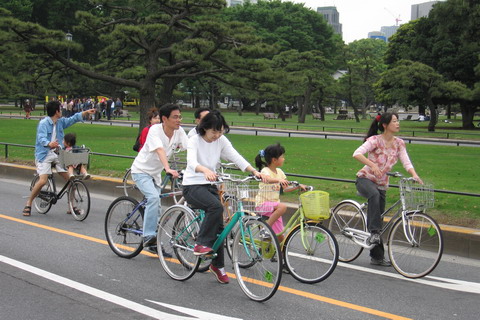
The case that has emerged concerns the Chocolate Factory development at Greenbank. As reported here way back in May a property developer, Squarepeg, plan to build terraced housing along what we first assumed to be the boundary of the Railway Path, but closer inspection of the plans suggested that the planned housing might intrude onto the Railway Path land. We now discover that the City Council are going ahead with the sale of a substantial strip of the former railway land to Squarepeg to accommodate this housing.
Such hubris on the part of the City Council is not so surprising. If the reward for planning to virtually destroy the nation's preeminent cycle path was to be awarded over £11 million of Cycling City funding, what should they fear from a clandestine sell-off of the green margins? Of course the usual suspects are in on the deal - Bradshaw*, Sustrans, George Ferguson and other latterday luminaries who now promote themselves as patrons of green transport.

But what of the thousands of ordinary Path users who campaigned so heroically to save the Path from the Council's misguided transport plans this spring? Have they been consulted? Did they even know anything of the planned sell-off? It seems not, at least not until after the event, when a small print announcement appeared in Squarepeg's newsletter tucked away under the attention grabbing heading "coherent approach creates combined application" (zzzzz) reporting that "negotiations to purchase ... have been successful and the application now includes.....a strip of land that runs along the cycle path".
There are mixed views on this high profile development, as might be expected, and many people are expressing concern at the loss of the green corridor which is as vital a component of the Railway Path as the tarmac path. For all we know, it may even be that the tarmac path itself may be moved over from its existing alignment to maximise the land available for the housing, so the green margins may be degraded on both sides.

There are also concerns about conflict between Path users and residents of the houses, particularly small children and pets, who might emerge suddenly from the concealment of the access ramps into the path of a cyclist. The last thing Path users want is to be put into a position where they are endangering others, especially children. Yet it's clear enough (except apparently to Sustrans) from the sketches supplied that that is exactly what will happen.
But fear not, the City Council always know best and will in due course give their approval to the Planning Application, expected to be submitted next week. They have, according to Squarepeg, already preempted the decision by selling off the land.
(*Later edit - it seems that Bradshaw might not have been involved after all, nor any other elected Councillor! See later posts for details.)
For the follow-up post click here.








